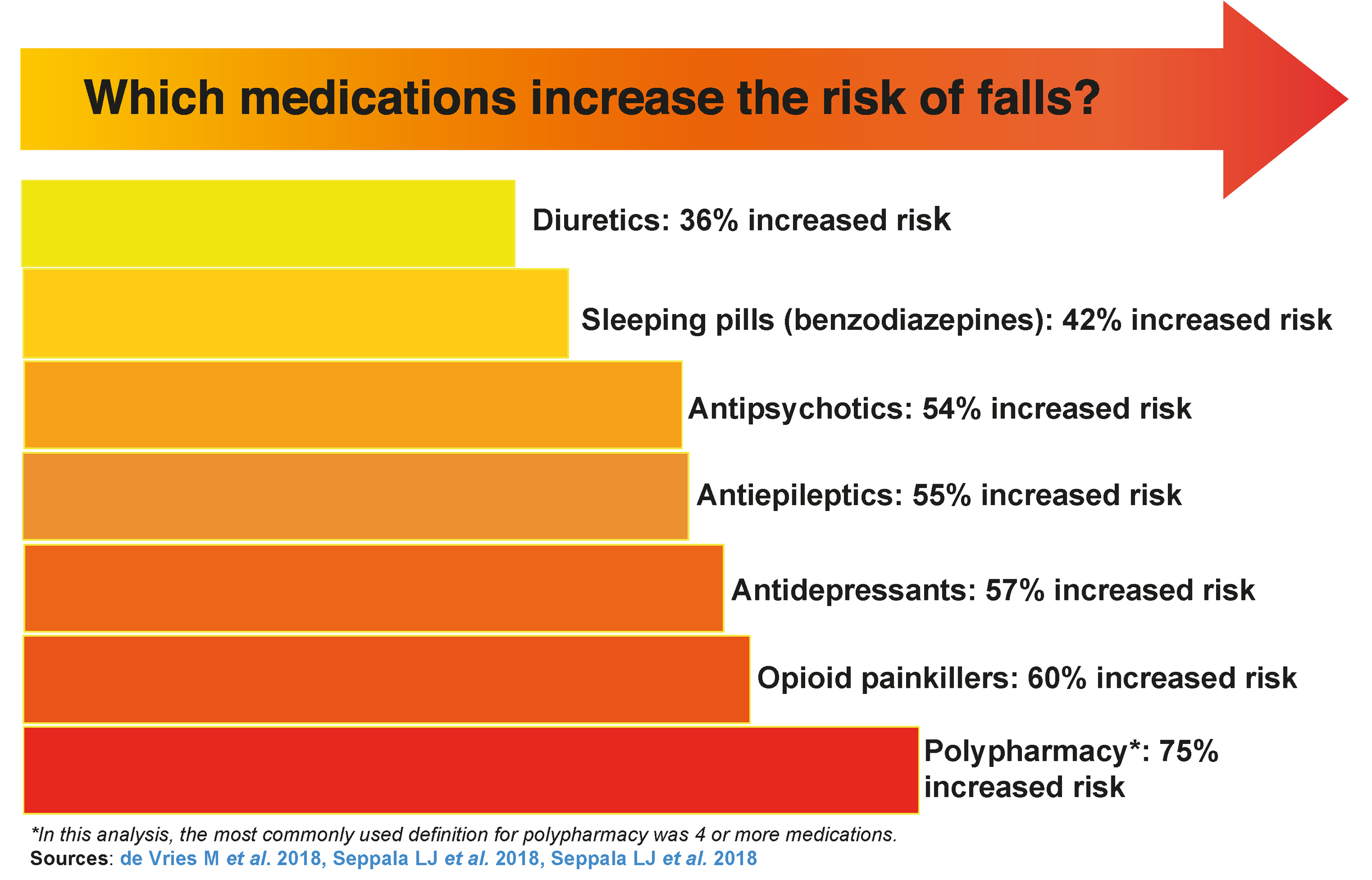Medications and falls
Certain medications can make you more likely to fall, which can cause injuries that sometimes require hospitalization.
Did you know?
1 in 5 people (20%) over the age of 65 living in the community report having a fall over the past year, with a higher prevalence among older seniors, i.e., over 80 years (Statistics Canada, 2010)
For Canadian seniors, most hospitalizations from injuries are due to falls.
Falls cause 9% of all emergency room visits (CIHI 2011).
When you take more medications, you are more likely to fall.
Harmful effects of medications, such as concentration and balance problems, drowsiness, dizziness, or a drop in blood pressure, may increase the risk of falls.
Concerning facts about hip fractures
95% of hip fractures occur during a fall (Huang et al. 2012).
20-30% of hip fracture patients die within one year of the fracture (Kong et al. 2012).
The following medications can make you more likely to fall. Click on the links below to download our brochures and learn more:
Sleeping pills or anti-anxiety medications such as lorazepam (Ativan®), oxazepam (Serax®), zopiclone (Imovane®) or zolpidem (Sublinox®).
Antipsychotic medications such as quetiapine (Seroquel®) or risperidone (Risperdal®)
Opioid medications such as morphine (Statex®, M-Eslon®) or oxycodone (Oxyneo®, Percocet®)
How can I reduce my risk of falls?
Strengthen your muscles: exercise to strengthen your muscles, especially your legs, and improve your balance. There are many programs or activities that will help you achieve this. The recommended exercise prescription to prevent falls is at least 30 minutes per day.
Optimize your eyesight: have your vision assessed regularly by an optometrist. Correct problems (myopia, presbyopia, cataracts, etc.) as needed. Cataract surgery can reduce the risk of falls.
Create a safe environment: limit carpets that slide easily over floors and over which you may slip and fall, remove furniture that obstructs passageways, use adequate lighting. A safe environment can reduce the risk of falls.
Discontinue medications that may increase the risk of falls: book an appointment with a health care provider to review your medications and see if some of them may increase your risk of falls. Deprescribing may be an option. Do not stop any medication without talking to your doctor, nurse or pharmacist.
(Source: Ordre professionnel des physiothérapeutes du Québec).


